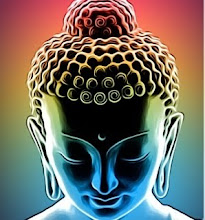To be smitten, enthralled, with jewels & ornaments,
longing for children & wives:
that's the stronger fetter, so say the enlightened,
one that's constraining, elastic, hard to untie.
longing for children & wives:
that's the stronger fetter, so say the enlightened,
one that's constraining, elastic, hard to untie.
But having cut it, the enlightened go forth,
free of longing, abandoning sensual ease.
Those smitten with passion
fall back into a self-made stream,
like a spider snared in its web.
free of longing, abandoning sensual ease.
Those smitten with passion
fall back into a self-made stream,
like a spider snared in its web.
But, having cut it, the enlightened set forth,
free of longing, abandoning all suffering & stress.
(Dhammapada XXIV: 345-47)
My comment:
We imprison ourselves by our thoughts and by the way we act on them.
Buddhism refers to the problem of "craving," which in English brings to mind bodily cravings like our desire for a certain food (chocolate, candy, etc.). But what is really meant is the blinding want that we feel, the feeling of incompleteness and unfulfillment that we feel, and which we try to alleviate by seeking and acquiring things, material or otherwise. Sometimes it is food or drink, sex or drugs, but for some of us it is status, achievement or wealth. Think of the workaholic, spending long hours in the office, week after week, year after year, plugging away at her computer. "If only I could _____, then I would be happy."
Buddhism teaches us that it is the unsated wanting that causes so much of our suffering. The feeling of unfulfillment leaves us feeling inadequate, empty, desperate, jealous or frustrated. The wanting itself drives us to do things which are harmful to ourselves and others: working too much, neglecting our loved ones, turning away from others in their time of need, using intoxicants, food, sex or other things to distract us from our unhappiness.
Sheryl Crow says it most succinctly in her song Soak Up The Sun:
"It's not having what you want
It's wanting what you've got."
The key is to let go of the wanting and to embrace the world as it is, mindfully.
Easier said than done. That's why it's called "practicing" Buddhism.


1 comment:
So very true
Post a Comment